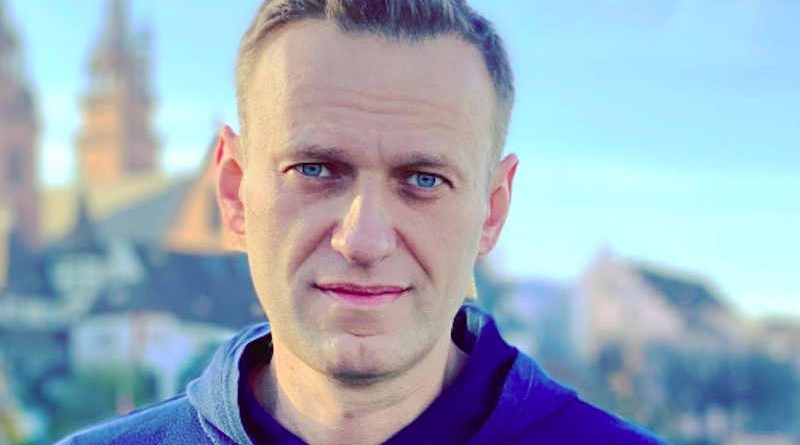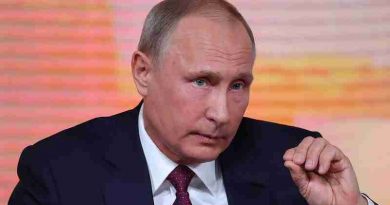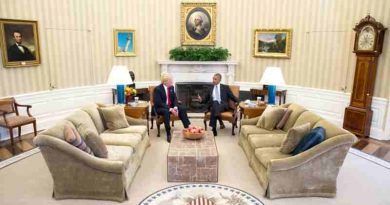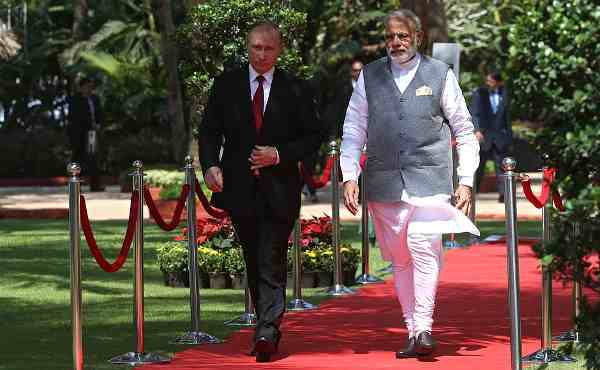New Russian Law to Ban Alexei Navalny from Running for Elections
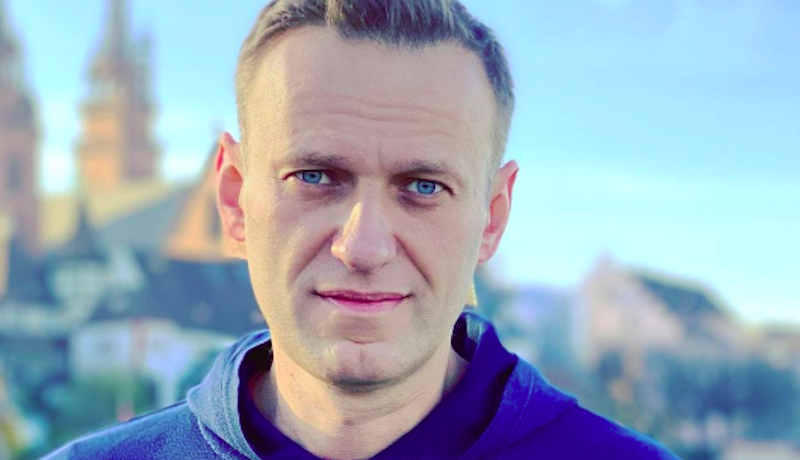
The harsh actions against Navalny are being taken despite a slew of sanctions and censure statements by the U.S. and European leaders against Russia.
By Rakesh Raman
A new law in Russia will stop jailed Kremlin critic Alexei Navalny from running for any elected post for a period of 5 years. The Federation Council, Russia’s upper house of parliament, approved a bill on June 2 that will ban “extremist” organizations and their members from contesting elections and attaining any elected position.
The bill will become law after President Vladimir Putin’s consent which is expected to come. The law will affect Navalny’s chances of participating in the crucial parliamentary elections in September, as his Anti-Corruption Foundation (FBK) is expected to be declared an “extremist” outfit. The employees of such organizations will also face a 3-year ban. Navalny’s FBK has already been declared a “foreign agent” under another draconian law.
In April, Russia’s Federal Financial Monitoring Service (Rosfinmonitoring) had said that “Navalny Networks” now appears on its searchable database of groups and persons with links to terrorist activities, which includes al-Qaeda, the Taliban, and the Islamic State.
The harsh actions against Navalny are being taken despite a slew of sanctions and censure statements by the U.S. and European leaders against Russia. It shows that such weak-kneed measures against Russia do no work.
Russian President Putin continues to work in a dictatorial manner and ignores the feeble punitive actions taken by the world community against his autocratic decisions. In other words, the world leaders have completely failed to tame and punish Putin and get Navalny released from detention.
|
Futile Sanctions The EU and the U.S. have been imposing sanctions on various states and their functionaries over human rights violations, crimes against humanity, and other criminal activities. But such sanctions are simply ignored by the rogue states and their leaders who continue to commit crimes against their citizens with full impunity. The imposition of sanctions is an ineffective measure to stop state crimes. ~ Rakesh Raman |
As Navalny is perhaps the only leader who can challenge Putin’s attempt to rule forever, it is believed that the Putin regime is trying to kill him slowly in jail. Putin has signed a new legislation that will allow him to stay in power until 2036, while his second consecutive and fourth overall presidential term ends in 2024.After sending him to jail under frivolous charges, it appears that the Russian regime is slowly trying to murder Navalny, 44, who is serving a torturous prison sentence near Moscow.
Last year, as documented reports suggest, Russian secret police unsuccessfully tried to kill Navalny with a banned chemical weapon. The Washington Post reported in April that Putin is slowly but very intentionally murdering his political opponent Navalny.
Since his arrival there in late February, according to the The Washington Post article, Navalny has been systematically deprived of sleep through hourly wakings and denied proper medical treatment for serious ailments, including a respiratory disease which Navalny believes may be tuberculosis.
According to Reuters, Navalny lost a legal case on June 2 to overturn his designation as a flight risk, a label which he says allows prison guards to subject him to ‘torture’ by sleep deprivation. He is currently serving a two-and-a-half-year jail term for parole violations in a case which he says is frivolous.
In order to defeat Putin and his United Russia party, Navalny’s supporters have devised a “smart voting” strategy to promote candidates who can defeat those from the United Russia party in various elections.
Meanwhile, Putin is leaving no stone unturned to see that all forms of dissent is crushed and attacks on his most vocal opponent Navalny is part of Putin’s authoritarian plan. Many of Navalny’s supporters have already fled the country to avoid arrest.
In 2018, Putin had won the presidential election to lead Russia for his second 6-year term. Putin has ruled the country as either President or Prime Minister since 1999. In the 2018 election, according to official results, he got more than 76% of the votes with an increase of 12% from his 2012 performance.
Putin’s nearest competitor Pavel Grudinin received just 12% of total votes and Navalny, who was planning to challenge Putin in the election, was barred from the race.
By Rakesh Raman, who is a national award-winning journalist and social activist. He is the founder of a humanitarian organization RMN Foundation which is working in diverse areas to help the disadvantaged and distressed people in the society.


